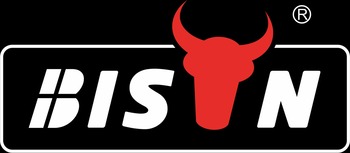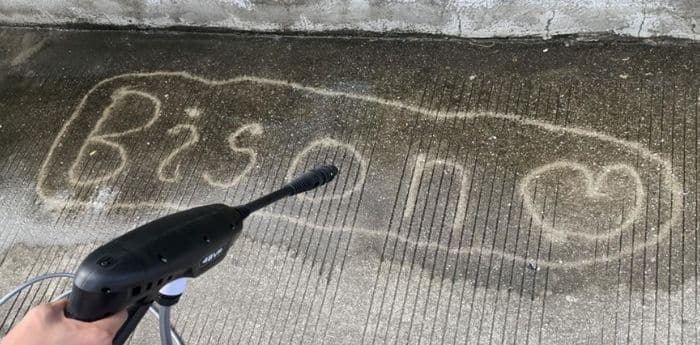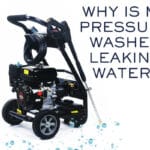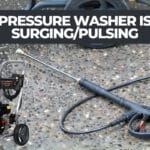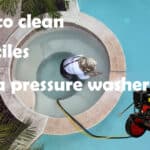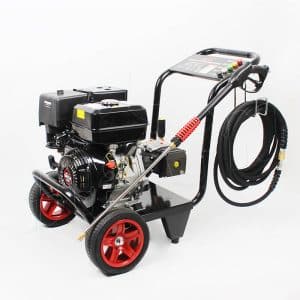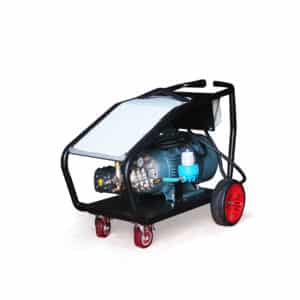
BISON Santy
Hello, I am Santy, the funder of bisonclean.com. I have been in cleaning machinery field for more than 5 years now, and the purpose of this article is to share with you the knowledge related to pressure washer from a Chinese supplier's perspective.
Table of Contents
Pressure washers, also known as power washers, are mechanical devices that use high-pressure water to remove loose paint, mold, grime, dust, mud, and dirt. These pressure washer generally fall into two main categories: commercial pressure washers and home pressure washers. While both serve the basic purpose of cleaning, they differ significantly in terms of power, durability, and intended use. Today, BISON will help you decide which equipment is right for you in our deep dive into the commercial vs. home pressure washer debate.
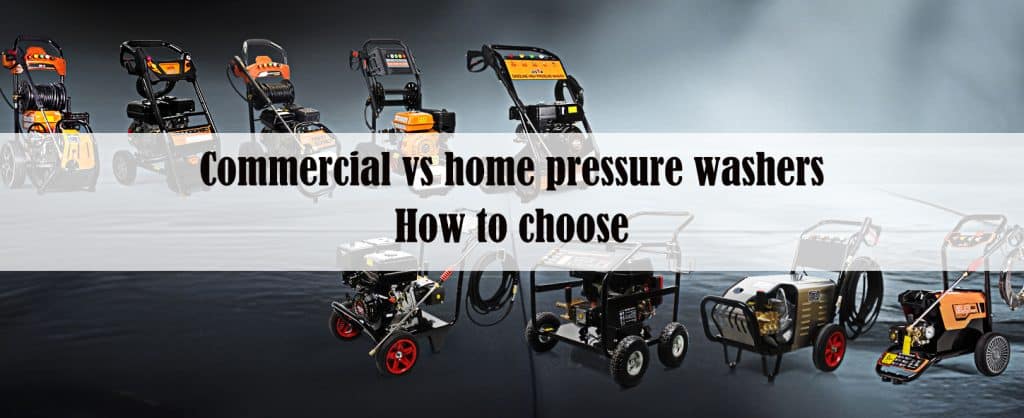
Commercial pressure washer
Commercial pressure washers are heavy-duty cleaning machines designed for frequent, intense use in professional settings. They boast higher pressure ratings, typically 3000 PSI (pounds per square inch) or more. These robust units are built to withstand long hours of operation and deliver consistent, powerful cleaning performance.
Typical uses of commercial pressure washers include:
Industrial cleaning:
- Factories: Cleaning heavy machinery, production lines, and industrial floors
- Warehouses: Maintaining large storage areas and loading docks
- Construction sites: Cleaning equipment and preparing surfaces
Professional services:
- Car washes: High-volume vehicle cleaning
- Large cleaning companies: Tackling a variety of commercial and residential projects
- Graffiti removal services: Efficiently removing paint from various surfaces
- Restaurant and food service industry: Cleaning kitchen equipment and outdoor areas
Home pressure washers
Home pressure washers, also known as residential or consumer-grade pressure washers, are compact and user-friendly cleaning devices designed for household use. It is usually rated at a lower power compared to commercial pressure washers, usually between 1300 and 2800 PSI. You can also use your garden hose with a high-intensity nozzle. These units are more compact, lighter, and easier to maneuver, making them ideal for homeowners and DIY enthusiasts.
Typical uses of home pressure washers include:
- Patios and decks: Removing dirt, mildew, and stains
- Driveways and sidewalks: Clearing oil stains and accumulated grime
- Cars, boats, and recreational vehicles: General cleaning and maintenance
- Exterior siding: Refreshing the appearance of homes
- Fences and outdoor furniture: Removing weathering and preparing for refinishing
- Cleaning gutters and downspouts
- Maintaining garden tools and equipment
- Cleaning outdoor grills and cooking areas
The key differences: Commercial vs. home pressure washers
1) Cleaning power
PSI (pounds per square Inch) and GPM (gallons per minute) are crucial metrics that determine a pressure washer’s cleaning capacity.
But what specific PSI and GPM makes a pressure washer home vs. commercial? While home users should look for pressure washers between 1,300 and 2,000 PSI, commercial pressure washers fall between 3,200 and 8,000 PSI. At the same time, commercial pressure washers typically have a GPM greater than 3, while home pressure washers are between 1.2-2.5.
Therefore, commercial pressure washers outperform their home counterparts. This significant difference in output means commercial units can tackle tougher cleaning jobs more quickly and efficiently.
2)Durability and design differences
The overall build quality of commercial and home pressure washers varies greatly.
Designed for continuous operation throughout the day. Commercial pressure washers feature heavy-duty steel frame support and cart designs to withstand harsh environments and frequent transportation, professional-grade hoses that resist kinking and abrasion, and metal joints and connectors that ensure long-lasting leak-free operation.
Home pressure washers usually have a lighter frame, usually with plastic parts, suitable for home use but less durable. The standard-grade hoses that come with them are suitable for occasional use and need to be replaced regularly. Its duty cycle is typically 30-60 minutes.
3) Analyzing cost differences
Home pressure washers have low upfront costs making them affordable for most homeowners. For monthly or seasonal use, home units are often more cost-effective. However, commercial equipment has a longer lifespan (perhaps more than 10 years) and can be kept running with regular maintenance and replacement of parts. Unfortunately, replacing a residential pressure washer in the event of a breakdown can be more cost-effective than extensive repairs.
4) Engines/motors differences
Commercial pressure washers usually use gas engines that are more powerful and not limited by cord length, and their motors are industrial grade.
Home pressure washers usually use small gas engines with high portability and quieter motors.
Decision guide – Choosing between commercial and home pressure washers
Are you still struggling to decide whether to choose a commercial or home pressure washer? Don’t worry, BISON has created a choice decision table for you, so you can choose the one that best suits your needs in your own situation.
Factor | Home pressure washer | Commercial pressure washer |
Frequency of use | Occasional (monthly or less) | Frequent (weekly or daily) |
Type of tasks | Light to medium-duty cleaning (e.g., cars, decks, patios) | Heavy-duty cleaning (e.g., large buildings, industrial equipment) |
Cleaning area size | Small to medium areas | Large areas or multiple locations |
Budget | Small budget | Sufficient budget |
Storage space | Limited space available | Larger storage area available |
Transport needs | Easy to move around home | Needs to be transported between job sites |
User experience | Beginner to intermediate | Experienced or professional |
Power source | Preference for electric | Need for gas-powered units or heavy-duty electric |
Maintenance capability | Basic DIY maintenance | Willing to perform or pay for regular professional maintenance |
Durability requirements | Can tolerate occasional use | Needs to withstand daily, rigorous use |
Noise tolerance | Prefer quieter operation | Can tolerate louder operation |
Attachment variety | Standard attachments for home use | Wide range of specialized attachments |
Environmental concerns | Prefer eco-friendly options | Willing to use more powerful, potentially less eco-friendly options |
Warranty expectations | Standard consumer warranty | Extended commercial warranty |
Conclusion
Choosing between a home and a commercial pressure washer depends on specific cleaning needs. A home pressure washer offers plenty of power and convenience for everyday household chores. Meanwhile, a commercial pressure washer is built for heavy-duty use if you’re dealing with large areas or running a business that requires strong cleaning capabilities.
As a leading supplier of pressure washers in China , BISON offers unparalleled expertise and product quality. Don’t miss the opportunity to partner with an industry leader. For distributors and businesses seeking top-quality pressure washers, BISON stands out as the premier choice. Take action now: Connect with BISON and power up your pressure washer inventory with industry-leading quality and innovation!
FAQs About Commercial vs Home Pressure Washers
A residential pressure washer comes with only one wand/hose. On the other hand, commercial counterparts may come with one, two, or even three different hoses. In a commercial environment, you want to get the job done right, but you also want to get it done as quickly as possible. With several people operating the pressure washer at the same time, you can work twice as fast – or maybe even three times as fast!
You might also enjoy
Questions?
Contact Us Today.
Related Products
Find more?
Related Posts
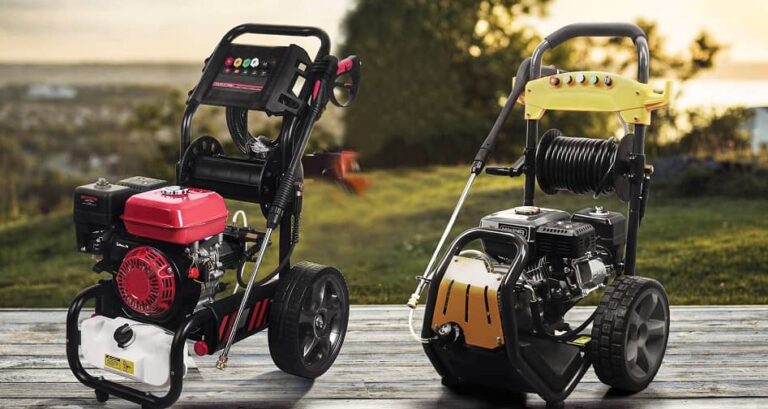
4 GPM Pressure Washer-Best Home Use Pressure Washer
When choosing a pressure washer, one important factor to consider is what gpm pressure washer do I need? Bison 4 GPM Pressure Washer maybe your
